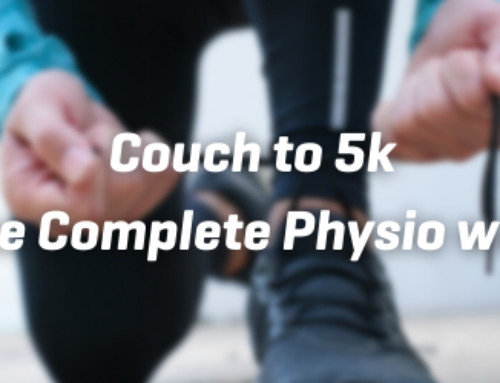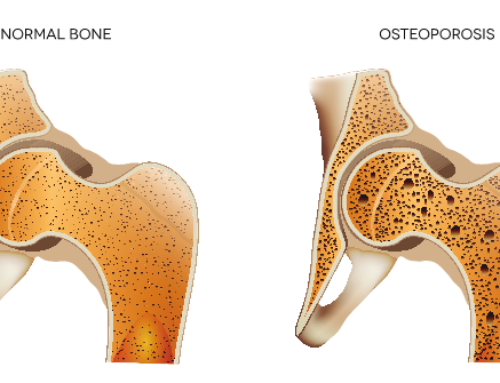Can I exercise in pregnancy?
In short, yes!
For the majority of women, it’s completely safe to exercise when you’re pregnant. In fact, it is not only safe, it’s actually recommended by the NHS and the Royal College of Obstetricians and Gynaecologists.
If you are not a naturally active person, there is no need to worry as there is never a bad time to start.
One of the most important things to consider with your choice of exercise is that you include a variety of movements. For example:
- Pilates
- Walking
- Running
- Cycling
- Swimming
- Gardening
- Resistance training such as weights
- Yoga
The list goes on! There are so many movements and activities you can do whilst you’re pregnant, it is important to focus on what you can do, rather than what you cannot.
If you do have a condition which makes exercise unsafe during your pregnancy, your consultant will have discussed this with you. However, conditions can include:
- Certain types of heart and lung diseases
- Being pregnant with twins, triplets or more with risk facts for preterm labour
- Placenta previa after 26 weeks
- Severe anaemia
- Preeclampsia or pregnancy induced high blood pressure
If you are unsure, the most important thing is to ask!
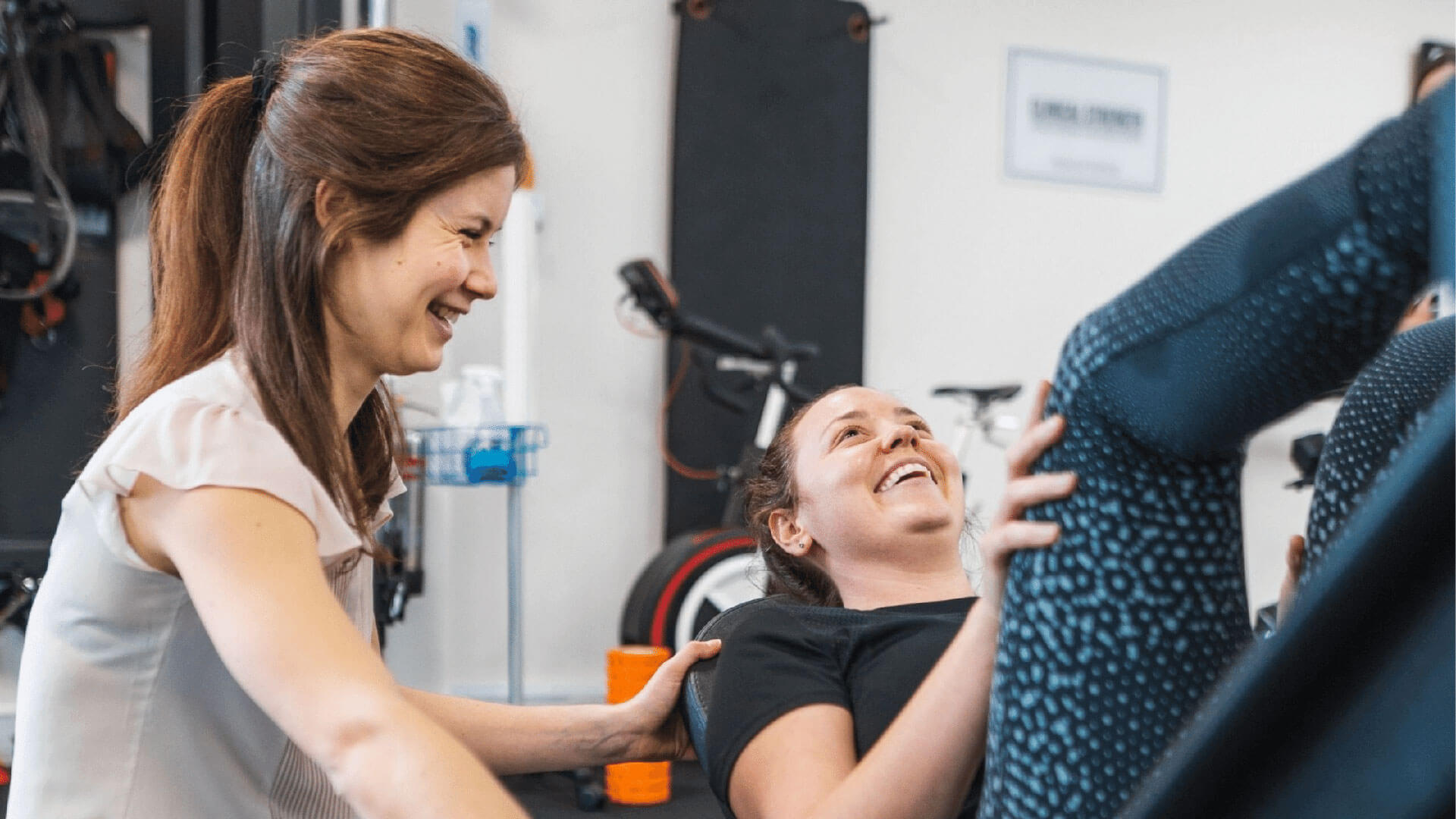
What are the health benefits of exercise in pregnancy?
There are lots of benefits for both you and your baby of exercising during pregnancy. Importantly, these carry over into the postnatal period and help you deal with the demands of being a mum. These include:
- Improves your overall general fitness
- Strengthens your heart and helps reduce high blood pressure
- Promotes healthy weight gain during pregnancy
- Can reduce your risk of gestational diabetes, preeclampsia and a c-section delivery
- Eases constipation
- Reduces back pain
- Improves your mood
- Improves your sleep
How much should I exercise in pregnancy?
Ideally pregnant women should be aiming for around 150 minutes of exercise per week. This should be a variety of types with an aim of reaching moderate intensity. Simply put, this means your heart rate rises and you start to sweat. However, you should still be able to talk.
It is recommended that you divide your exercise into roughly 20-30 minute stints. However, if you are new to exercise, starting out slowly and gradually increasing the time is a great place to start!
If you are a naturally very active person, it is likely you can carry on with your activity. Talk to your Obstetrician at your appointment and they will be able to help. However, if you start to lose weight, you may want to increase the number of calories you are eating.
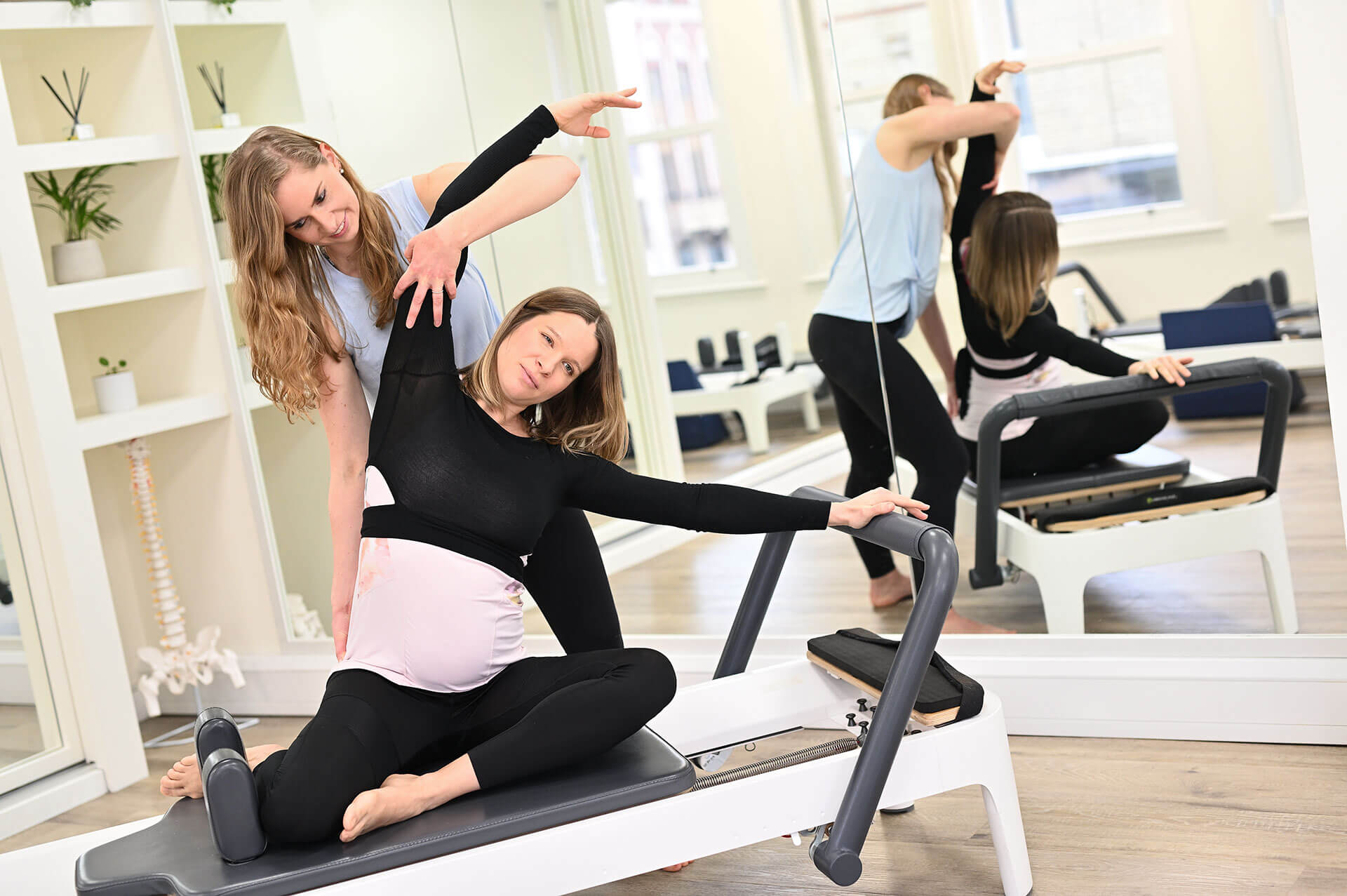
What exercise should I avoid when pregnant?
Simply put, try to avoid ‘bumping the bump’.
With exercise in pregnancy, it is important to listen to your body and avoid anything which may bump your bump. This includes activities like:
- Contact sports
- Horse riding
- Skiing
Hormonal changes in your body also mean that your core body temperature rises.
For this reason, when you are exercising its important you try to avoid getting too hot. During this period, you might want to consider changing some of your normal activities. For example, if you love hot yoga, we would recommend you try a prenatal Pilates or yoga class.
It is also important to look at how you are loading your abdominals.
We tend to advise you avoid movements like sit-ups during pregnancy due to the significant increase in intra-abdominal pressure. This can lead to a slightly bigger risk of developing diastasis which is very common in pregnancy.
When should I stop exercising?
We often get asked by pregnant women, when should I stop exercising?
If the truth be told, you can continue to exercise right up until you go into labour as long as you feel comfortable and are happy to do so.
At this point, it is important to listen to your body.
If something doesn’t feel right, if something doesn’t feel comfortable or if you’re concerned, you can stop what you’re doing and ask for help. This may mean getting in touch with your GP or pelvic health physio for an assessment.
A pelvic health physio can help guide you around the best activities for you and can help you modify your activities so you do feel comfortable continuing.
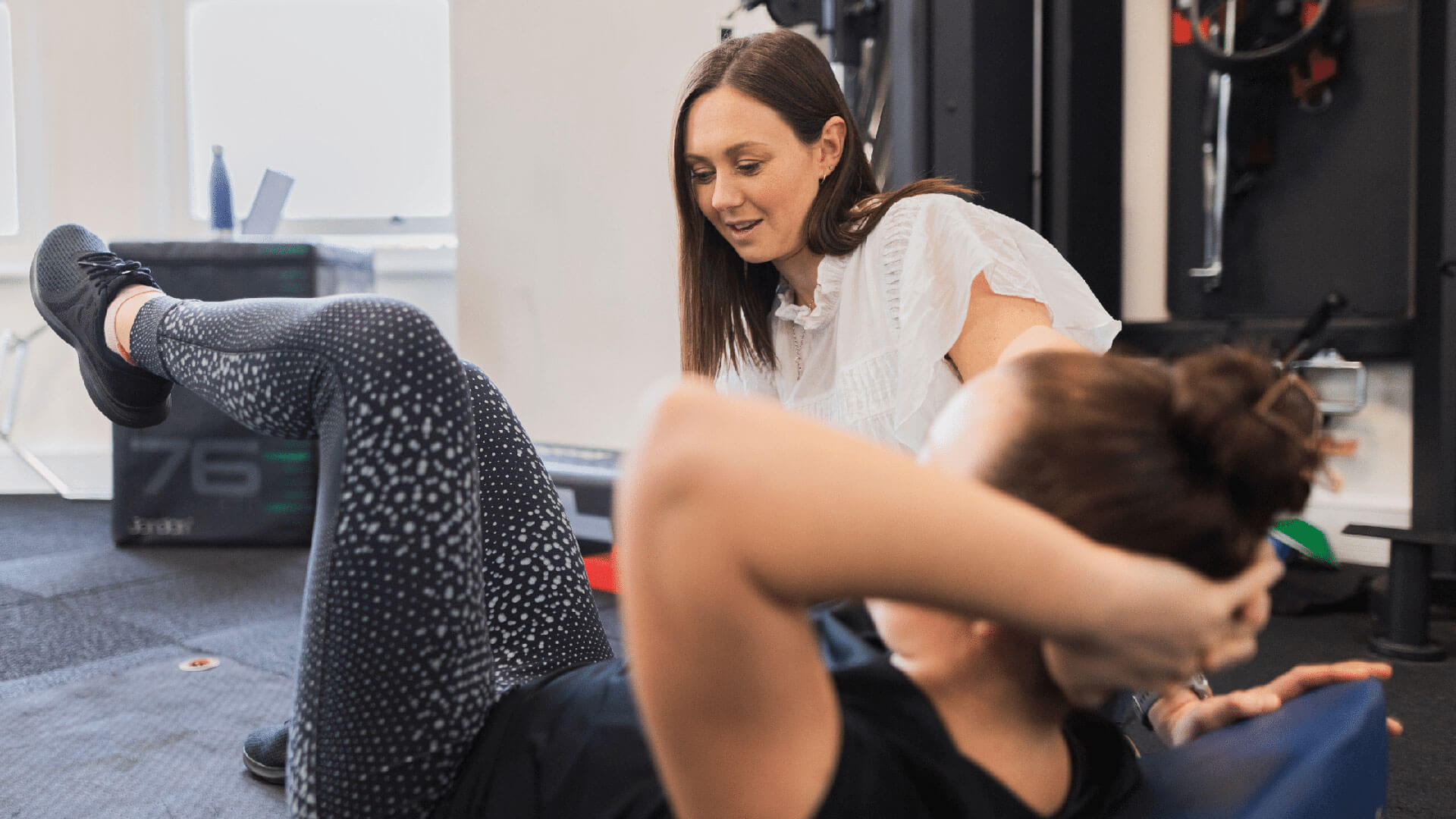
Exercising in the 3rd trimester:
Your body goes through a lot of changes during pregnancy so it is important to take these changes into account.
As you progress through your pregnancy often day-to-day tasks become more challenging.
Your balance can be thrown off as the extra weight on the front of you shifts your centre of gravity. This change in weight can also place added stresses on your joints and muscles, particularly around your lower back and pelvis.
You may also find that you start to find it more difficult to take deep breaths. When you exercise, we need oxygen and blood flow to feed our muscles which takes it away from other areas of your body. However, when you are pregnant, your need for oxygen increases. Consequently you may find exercise becomes harder so you are less able to do strenuous exercise.
This is a great period to take as a time to take a bit of a step back if you feel you need to.
Often it is a really nice period to take up lower impact exercises like Pilates, Yoga, Tai Chi or swimming. Again, the important thing is to remember that there are great activities out there which will help keep you moving.
Tips on exercising during pregnancy
The most important thing is that you stay active as this will help to keep you strong and ready for labour as well as being a mum!
When you are exercising, remember these tips:
Drink plenty of water
This includes before, during and after. If you are unsure if you are drinking enough you can check the colour of your urine. Dark yellow simply put means try to drink more.
Choose your sports bra!
Go to a proper fitter and get a sports bra which gives you lots of support to protect your breasts.
Wear loose breathable clothing
This can help control your body temperature. As discussed previously, your core temperature increases when you are pregnant. Wearing comfortable clothing which allows your skin to breathe will help this.
Keep moving!
As you progress through your pregnancy, you may want to avoid lying flat on your back for periods of time. When you lie on your back, your uterus presses on a large vein which returns blood to your heart. This may cause your blood pressure to decrease. It is easy to combat this though as you can simply lie with support so that you aren’t completely flat!
Do what feels good
No-one knows your body better than you do. If something doesn’t feel quite right, never be afraid to ask questions. Speak to a pelvic health physio or GP as they will be able to help steer you through continuing to exercising in pregnancy.
If you have any concerns or questions about exercise and pregnancy, feel free to give us a call as we are more than happy to help get you underway with your exercise programme.
Don’t let pain hold you back, book now!


